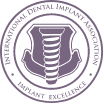Sleep Apnea Therapy – Burlington, MA
Oral Appliance Therapy
Saves Restless Sleepers

Getting plenty of restful sleep is the key to feeling good the next day. But, if you are one of the millions of Americans dealing with obstructive sleep apnea, you may wake up feeling more tired than before you went to sleep. This is a common type of sleep breathing disorder that causes its sufferers to snore and wake up hundreds of times throughout the night. Fortunately, there is relief in sight with sleep apnea therapy at our Burlington, MA dental office from Dr. James P. Kostas.
Why Choose Complete Dental Care for Sleep Apnea Therapy?
- Highly Trained and Experienced Dentist
- Long-Lasting, Personalized Oral Appliances
- Dental Insurance-Friendly Dental Office
What Is Sleep Apnea?

The most common form of sleep apnea is obstructive sleep apnea (OSA), which occurs when the soft and hard oral tissues collapse and block the proper flow of air from the lungs through the throat at night. The blockage can be either complete or partial, and it also results in loud, chronic snoring that can disrupt the sleep of others nearby. People who are dealing with OSA may have their sleep interrupted hundreds of times in one evening, with the main problem being that they often will not remember the night of restless sleep the next morning.
Learning what the warning signs of sleep apnea are can help to ensure that you recognize the problem sooner rather than later.
- Loud, disruptive snoring
- Jerking awake repeatedly throughout the night
- Dry mouth or sore throat upon waking
- Confusion and irritability
- Difficulty completing daytime tasks
- Nighttime teeth grinding or jaw clenching
- Anxiety or depression
How Common Is Sleep Apnea?
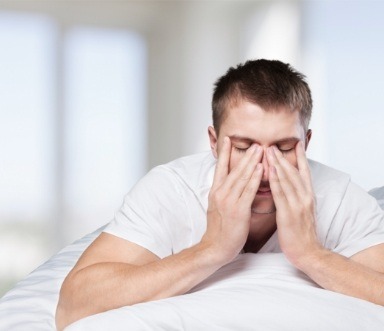
Sleep apnea is not at all unusual these days. In fact, its prevalence is on the rise along with the rising rates of obesity and overweight, which are the main risk factor for this disease. It is estimated that 18 million Americans suffer from obstructive sleep apnea, with many of these cases remaining without treatment.
Treatment for Sleep Apnea
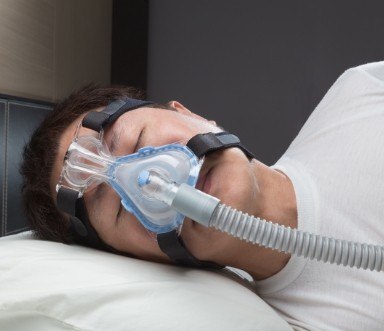
After you receive a diagnosis for sleep apnea, Dr. Kostas can provide treatment for sleep apnea. The most common method is with a CPAP, or continuous positive airway pressure machine. However, many patients do not have success with this method. For CPAP intolerant cases or patients who wish for a different solution from the start, oral appliance therapy can offer a wonderful alternative. This is a small device that is worn during sleep; it works by repositioning the lower jaw to prevent its collapse, allowing for the free flow of air through the throat at night. Many patients are able to regain their restful sleep with this treatment option.
Benefits of Sleep Apnea Therapy
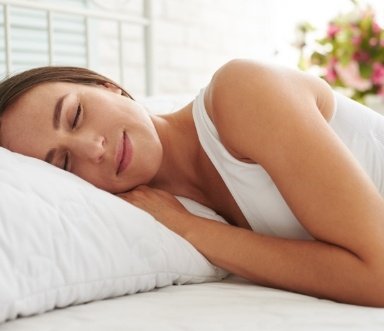
Sleep apnea therapy with the oral appliance offers a number of benefits for patients, including:
- All the benefits of a restful night’s sleep
- A customized solution that fits comfortably
- Oral appliances are small and portable
- No one else will be disturbed by your oral appliance (unlike with CPAP)
- No special equipment is required with an oral appliance
- And others!
Learn More Today!

If you are a chronic snorer suffering from sleep apnea, you deserve relief in the form of a restful night’s sleep. We can help you achieve just that with effective therapy for sleep apnea! To learn more, please get in touch with Complete Dental Care today.
Sleep Apnea FAQs
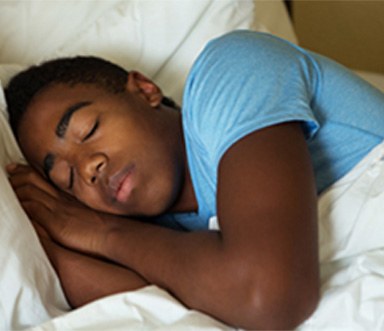
Here at Complete Dental Care, we understand that obstructive sleep apnea can be difficult to understand and that you might have several questions. We’ve gathered some of the most frequently asked questions that we receive about sleep apnea, along with their respective answers, so that you can put your concerns to rest and focus on getting back to bed. Of course, if you have any additional questions about sleep apnea or think it might be influencing your quality of life, don’t hesitate to give us a call to set up a consultation.
How Is Sleep Apnea Diagnosed?
Obstructive sleep apnea (OSA) is typically diagnosed through a sleep study, also called a sleep test. The test takes place in a clinic, but some patients are eligible for at-home testing. During the study, you will be connected to sensors that will monitor your breathing and other vital statistics. Afterwards, an expert will review the results of the test to determine whether you have sleep apnea, and if you do, how severe the condition is. This might seem like an odd process, but it’s a noninvasive and necessary diagnostic procedure that can get you on the road to better health.
Does Snoring Always Indicate Sleep Apnea?
The short answer here is no—snoring is simply the sound that occurs when air causes tissues in the throat to vibrate, and it happens occasionally to most people. For instance, it’s likely to occur if you’re suffering from a cold, nasal allergies, or even going to bed when you’re extra-tired. On the other hand, loud, frequent snoring is more likely indicative of sleep apnea, especially if it’s accompanied by long, noticeable pauses in breathing. Even if you sleep quietly, it is still possible that you have this condition and require professional care.
Who Is Most At-Risk for Sleep Apnea?
Anybody can develop sleep apnea, but some major risk factors for it include:
- Obesity
- Smoking and tobacco use
- Frequent alcohol comsumption
- Old age
- Chronic nasal congestion
- Anatomical irregularities in the mouth or throat (englarged tonsils, misaligned bite, etc.)
What Are the Risks of Untreated Sleep Apnea?
To put it simply, your sleep isn’t the only thing at stake if you leave the condition untreated; several serious problems can ensue. If left untreated, sleep apnea can lead to a number of serious health issues such as high blood pressure, heart disease, stroke, diabetes, and depression. It can also lead to daytime fatigue, which makes adhering to a normal and healthy daily routine difficult.
Are There Any Possible Side Effects with Oral Appliance Therapy?
Fortunately, oral appliance therapy is an effective means of mitigating sleep apnea. While most people do tolerate oral appliance therapy well, there is still an adjustment period in which patients might experience some uncomfortable side effects. For example, some people find that they unintentionally spit their device out during sleep. Others find that their device makes their facial muscles sore. In any case, though, oral appliances are considered easier to adapt to than CPAP machines.







